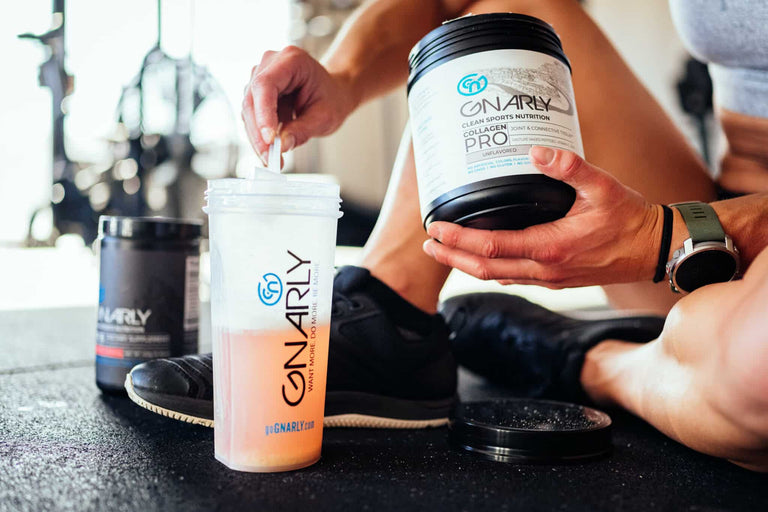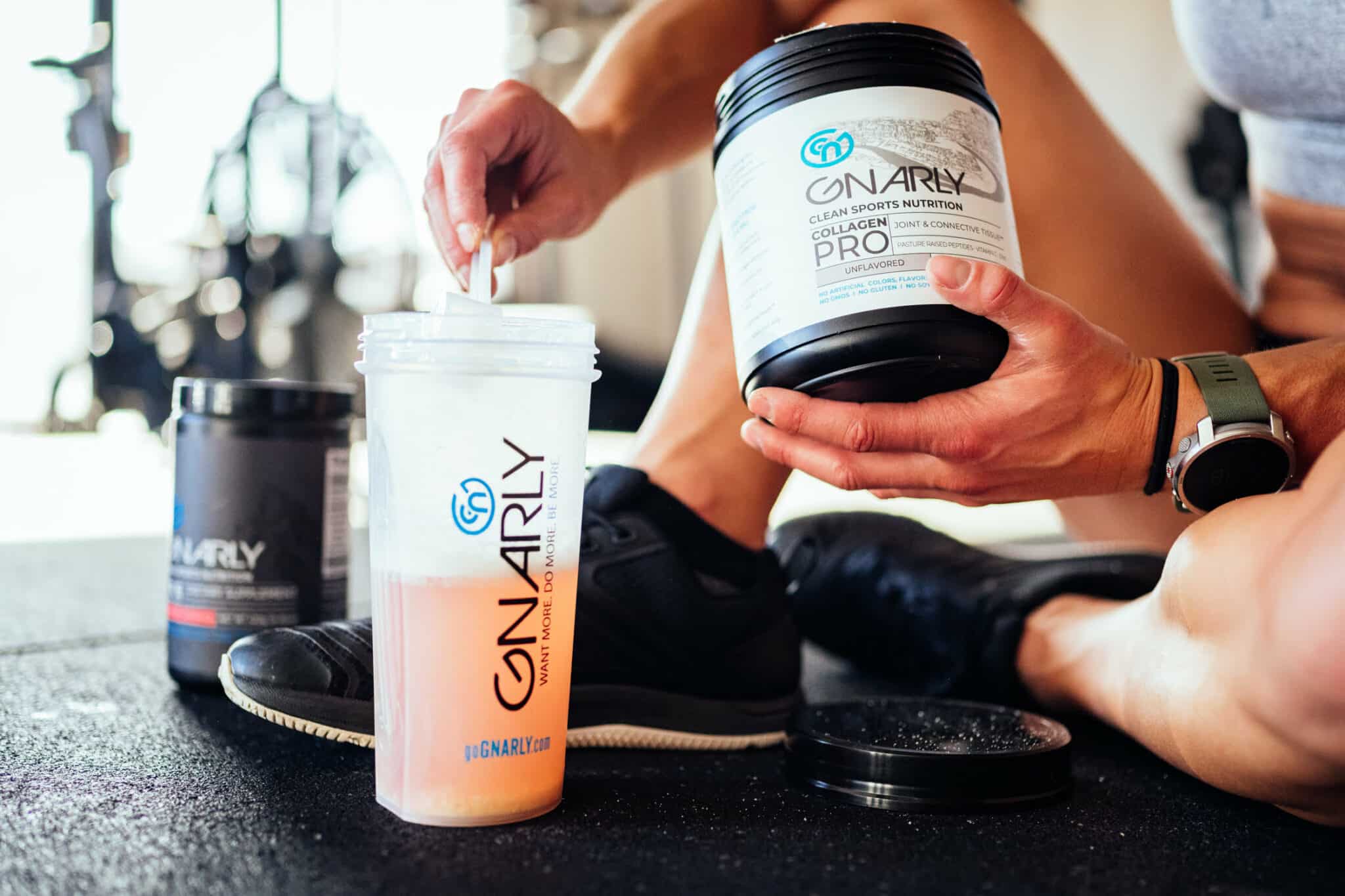Collagen is currently surging in the supplement industry. It is displayed prominently at grocery stores with claims promoting stronger joints, hair, skin, and nails. You can take your pick of marine collagen, bovine collagen, beef gelatin, vegan collagen, collagen creamer, collagen shampoo, or collagen peptides. With all of the various types, it can be overwhelming to determine what to expect from the supplement you are purchasing. Collagen is seemingly ubiquitous, but education is required to understand its function as a supplement. After reading this article, you’ll have a better understanding of collagen’s purpose and you’ll know whether or not it’s right for you.
What is collagen?
Collagen is the main structural protein in connective tissues². Hydrolyzed collagen and collagen peptides are forms of collagen that have been spliced so they no longer form a gel in solution¹. Gelatin is a denatured derivative of collagen used to make mainstream products with a “gummy” consistency². Imagine you are making a homemade bone broth: As it is boiling and the bones are denaturing, a gel forms at the top. This is the collagen separating from the connective tissue. It is important to note there are no vegan or vegetarian sources of collagen since it is derived from the connective tissue of animals¹.
Collagen protein is relatively low in essential amino acids and primarily composed of three non-essential amino acids: glycine, proline, and hydroxyproline. The major difference between non-essential and essential amino acids is whether or not our bodies can produce them. We can make non-essential amino acids, while essential amino acids cannot be synthesized by our bodies; therefore it is ‘essential’ that we get them from proteins in our diet.
Essential amino acids are especially important for recovery in active individuals as they turn on muscle protein synthesis and serve as its building blocks. Because of its low essential amino acid content, collagen is generally considered to be a low quality protein, especially for athletes. But wait, if collagen is such a bad protein, then why is everyone taking it? And why did Gnarly come out with Collagen Pro?


Why should active individuals consider collagen supplementation?
Collagen is the most plentiful protein in the human body, providing structure to bone, skin, tendons and ligaments. The human body makes collagen to form a matrix within musculoskeletal tissues. Collagen synthesis happens in the body with or without supplementation, but this production declines with age, starting at about age 20. This decline, along with other factors, can increase susceptibility to injury, particularly in athletes.
Evidence is beginning to suggest that collagen supplements, in conjunction with adequate nutrition, could decrease the prevalence of musculoskeletal injuries and potentially speed the recovery from these injuries¹. Nutritional interventions that increase the amino acids found in collagen are becoming more common to promote collagen synthesis. Ideally, this synthesis creates a stronger tissue that can handle the higher loads of stress and force presented in sports³.
When it is best to take collagen?
Current studies suggest taking a collagen supplement 30-60 minutes before exercise, so the amino acids in supplementary collagen reach peak levels as you start your workout. There is evidence demonstrating increased rates of collagen synthesis when a supplement is taken prior to a workout.¹ It’s also important to note that because collagen is low in essential amino acids, it should not replace high quality proteins in your diet and should not be used post-training as part of your recovery nutrition.²

So what does all this mean for me?
The take home message is that while collagen may be beneficial for active individuals, it should not replace the high quality protein in your diet. Instead, collagen should be added to your daily routine for injury prevention and tissue repair. Ideally, active individuals would take a serving (10-15g) of collagen in the hour before a training session and then follow up with a high quality protein rich in essential amino acids (like Gnarly whey or vegan protein) in the 60-90 minutes following.
Works Cited
- Bannock, L., & Baar, K. (2019, February 21). Episode 109 – “Collagen Peptides for Injury Prevention & Tissue Repair” with Professor Keith Baar. Retrieved July 23, 2020, from https://theiopn.com/episode-109-collagen-peptides-for-injury-prevention-tissue-repair-with-professor-keith-baar/
- Heaton, L., Davis, E., Rawson, J., Nuccio, K., Witard, E., Stein, S., . . . Baker, O. (2017). Selected In-Season Nutritional Strategies to Enhance Recovery for Team Sport Athletes: A Practical Overview. Sports Medicine, 47(11), 2201-2218.
- Shaw, Gregory & Lee-Barthel, Ann & Ross, Megan & Wang, Bing & Baar, Keith. (2016). Vitamin C-enriched gelatin supplementation before intermittent activity augments collagen synthesis. American Journal of Clinical Nutrition. 105.




